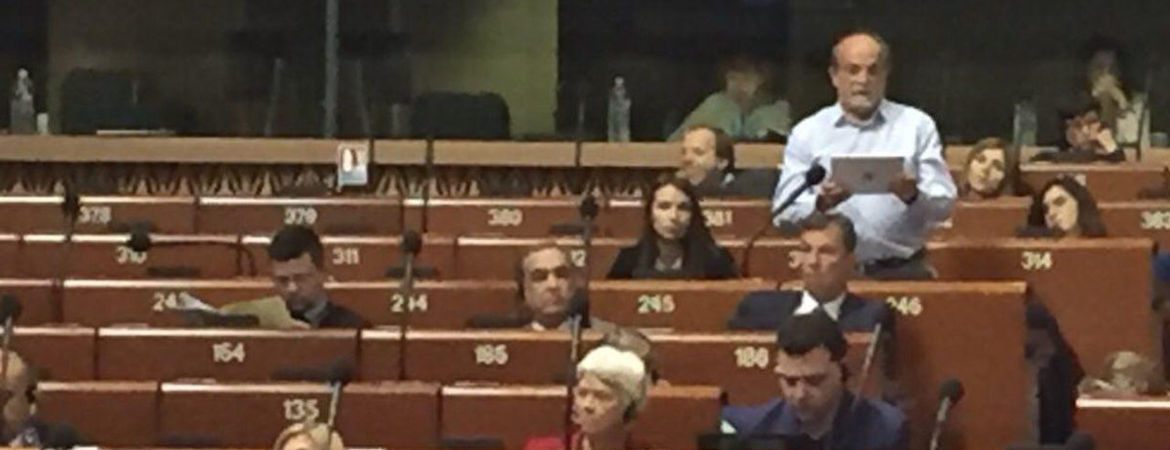
The speech by our Izmir MP Ertuğrul Kürkçü during the PACE Summer session joint debate on the report titled “Parliamentary scrutiny over corruption: parliamentary co-operation with the investigative media”.
I thank Ms Gülsün Bilgehan for her extensive and detailed report, which aims to empower investigative journalism by encouraging a joint front between the media and parliaments or, in other words, between the first and fourth powers vis-à-vis the supremacy of the second and third powers – the executive and the judicial – to, in her own words, “strengthen the role of parliaments and citizens’ confidence in democratic institutions and the media”. Parliaments in turn are expected to “enact laws to ensure the widest possible access to information, to put in place financial mechanisms to support investigative journalism without compromising its independence and to provide adequate protection to whistle-blowers”.
I welcome the leitmotif that extends throughout the report like a red thread: people have the right to information, particularly at every level of State governance. That is the sine qua non of checking ruling governments’ compliance with “social contracts”, “ethical values”, the “rule of law” and other democratic and social guidelines or election pledges. Therefore, the report’s core concept of “empowering investigative journalism” and protecting whistle-blowers by law is an inevitable conclusion at the legal level of the public aspiration to safeguard the right to protection from embezzlement and from cruel treatment by rulers.
The three traditional areas of power – legislative, executive and judicial – have throughout modern history frequently betrayed the people, fanned wars, protected the rich and persecuted the right, not only under authoritarian and dictatorial regimes, where it is mainly the political realm that is responsible for human rights violations and attacks on liberties. We have witnessed serious abuses in “democratic” countries too. I will just mention the very recent “anti-immigrant” legislation sweeping Europe and the “anti-Muslim” bans issued by the Trump administration in the United States.
In that context, Ms Bilgehan’s report could also be read as an SOS to the legislative to engage in a rescue operation for the “fourth estate”, or fourth power, to form a common front against corruption.
However, Ms Bilgehan’s report at this crucial moment echoes like a swan song in this Chamber, calling parliamentarians from across Europe to come to their senses and to recall both the popular fervour of the times of the European revolutions that brought the parliaments into existence, and the popular will that empowered them to fight against corruption, exploitation and torture.
I hope that Ms Bilgehan’s voice is heard, first and foremost, by the Turkish Parliament and by our colleagues from the Turkish delegation to PACE, the majority of whom turned a blind eye to the sentencing and imprisonment of Mr Berberoğlu, a member of Ms Bilgehan’s party. Berberoğlu’s alleged crime was supplying so-called State secrets to a whistle-blower who documented arms transfers under government orders to jihadists in Syria. There is no evidence that Berberoğlu provided the documents, and he has not confessed to doing so.
I support Ms Bilgehan’s report in the hope that it becomes a PACE norm and, thus, as long as Turkey remains a PACE member country, that Berberoğlu and all jailed deputies of our party are released from their imprisonment for fighting for legal protection for Turkish whistle-blowers.
Nevertheless, under the new paradigms governing the age of globalism, I prefer to stick to the aim of creating a new estate, as mentioned by Ignacio Ramonet during the fourth World Social Forum: “a fifth estate, that will let us pit a civic force against this new coalition of rulers. A fifth estate to denounce the hyperpower of the media conglomerates which are complicit in, and diffusers of, neoliberal globalisation”.
27 June 2017
